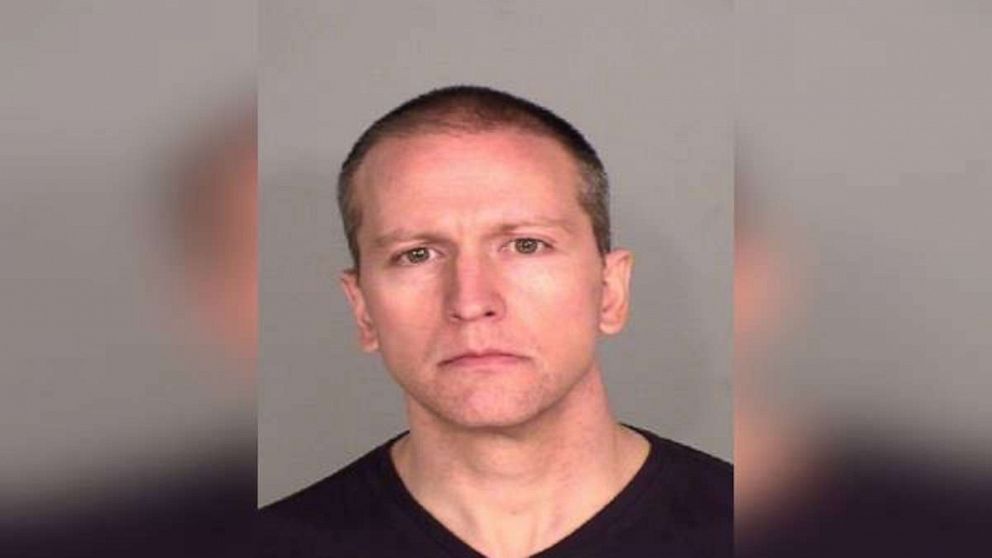MINNEAPOLIS – A former Minneapolis police officer who held his knee to George Floyd’s neck for minutes will be tried separately from the three other former police officers accused of his death, according to an order registered on Tuesday citing limited space in the court due to COVID-19 restrictions.
Derek Chauvin will be tried alone in March, while the other three former officers will be tried together in the summer. In his order, Judge Peter Cahill cited physical space limitations during the coronavirus pandemic, saying that it is “impossible to comply with the physical restrictions of COVID-19”, considering how many lawyers and support staff the four defendants say would be present.
Prosecutors disagreed with the judge’s decision. A defense lawyer for former officer Thomas Lane said he believed a separate trial would be better for his client, while the other defense lawyers refused to comment or did not return messages.
Legal observers say the move benefits Chauvin’s co-defendants, who will have a preview of what state witnesses will say and more time to prepare. They will also blame Chauvin, who will not be tried with them to fight back.
Last week, prosecutors asked Cahill to postpone the trial from March 8 to June 7 to reduce the public health risks associated with COVID-19. In his order on Monday, which was filed on Tuesday, the judge wrote that, although the pandemic situation could improve a lot by June, “the Court is not so optimistic about the news detailing problems with the vaccine launch” .
Cahill’s order included an email from Hennepin County Chief Judge Toddrick Barnette, who requested that the trials be separated in a way that Cahill considered fair, after learning that each defendant planned to have a co-attorney or support legal in court. Barnette wrote that he looked at the configuration of the court and concluded that social distance could not be imposed in that space with so many people. Barnette wrote that he believed the court could handle up to three defendants at once.
Floyd, a black man, died on May 25 after Chauvin, who is white, pressed his knee against Floyd’s neck while he was handcuffed facedown on the street. Police are investigating whether Floyd used a counterfeit bill at a nearby store. In a video widely seen on social media, Floyd could be heard begging the cops for air, saying he couldn’t breathe.
Floyd’s death sparked protests in Minneapolis and elsewhere and renewed calls for an end to police brutality and racial inequalities.
Chauvin is charged with second-degree murder and wrongful death in Floyd’s death. Former officers Lane, Tou Thao and J. Alexander Kueng are both accused of helping and encouraging second-degree murder and assisting and complicating second-degree murder.
Defense lawyers argued last year that police officers should be tried separately, but prosecutors argued against that.
Attorney General Keith Ellison, whose office is processing the case, said on Tuesday that he disagreed with Cahill’s decision to separate the trials and suspend Chauvin’s in March.
“The evidence against each defendant is similar and multiple trials can re-traumatize eyewitness and family witnesses and unnecessarily burden the state and the court, while at the same time risking harm to subsequent juries,” said Ellison in a statement. “It is also clear that COVID-19 will still be a serious threat to public health in 8 weeks. … However, we are fully prepared and hope to present our case to a jury whenever the Court deems it appropriate. “
Lane’s lawyer, Earl Gray, said he thought his client had a separate trial from Chauvin.
“In a joint trial, there is always a contagion effect, no matter what. You know that a jury must consider each client separately, but that is difficult for anyone – common sense says so, ”said Gray.
Kueng and Chauvin’s lawyers made no comment. Thao’s lawyer did not return a message asking for comment.
Mike Brandt, a criminal defense lawyer who is not involved in the case, said the decision would benefit Chauvin’s co-defendants because they will have a preview of state witnesses and will be able to improve their strategies. They will also have trial transcripts, which can be “powerful” if a witness changes their story during the second trial.
In addition, he said, all three policemen can point the finger at Chauvin, who will not be at the same trial to defend himself.
If Chauvin is acquitted, Brandt said, the other three officers may still face trial on charges of aid and complicity, but the case would become more difficult. Brandt said it is difficult for prosecutors to prove a case against those who can be seen as less guilty if they cannot convict the alleged lead actor.
Brandt also said that the three policemen are unlikely to testify against Chauvin during his trial, because they have a Fifth Amendment right against self-incrimination. Even if prosecutors offered them immunity, police could still face federal criminal charges for violating Floyd’s civil rights – and the immunity offered by the state would not apply in federal court.
Brandt said that while prosecutors are likely to want the other officers to testify against Chauvin, it is highly unlikely that they will offer immunity in this case.
“I hope it’s all or nothing. I don’t think they are going to do business for anyone because of the high profile nature of it, ”he said. “If it were a gang murder, would they be making deals with the least guilty? You bet. But these are policemen. “
Thao, Kueng and Lane are due to be tried on August 23.
———
Associated Press writer Gretchen Ehlke in Milwaukee contributed to this report.
